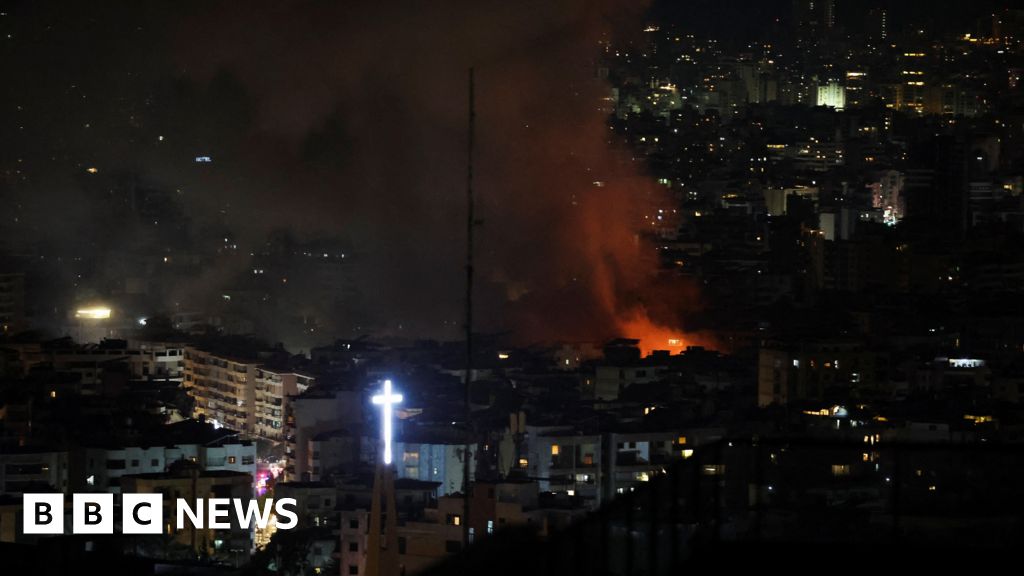ARTICLE AD BOX
By Vikas Pandey
BBC News, Lucknow
Image source, Getty Images
Image caption,Mayawati is fighting for her political legacy
The mood outside the Bahujan Samaj Party (BSP) office appeared downbeat compared to the bustling offices of other political parties in Lucknow, the capital of Uttar Pradesh (UP) state where polls are taking place to elect a new government.
BSP chief Mayawati is a four-time chief minister and an icon for Dalits - formerly untouchables who are at the bottom of a discriminatory Hindu caste system and, despite legal protections, continue to face harassment and violence.
Mayawati is the most experienced among the contenders for the top job.
But her campaign has been subdued and analysts are not giving her party even an outside chance to form a government. This has put a question mark on her future and also on her legacy.
Her party members, however, reject such assertions. A BSP worker in Lucknow told me that the media and everybody else was getting it wrong.
The party's strategy this time was to campaign door-to-door and not rely only on mega rallies, he said.
"She is the most recognisable Dalit face in the country. She is a symbol of the hopes and aspirations of our community and also for anybody who believes in good administration. People will not ditch us," he added.
While in power, she was indeed praised for her administrative skills and a tough stance on crime.
But her political fortunes have dwindled steadily after her thumping win in the 2007 assembly elections which came on the back of her famed strategy of "social engineering".
She turned the BSP's strategy upside down in 2007. Instead of aligning her party against upper-caste Hindus, whose discrimination of Dalits is widely documented, she brought the two communities together, promising them both good governance and development.
Image source, Getty Images
Image caption,Statues of Mayawati and BSP founder Kanshi Ram were built during her tenure
But she failed to return to power five years later, which was largely blamed on excesses like building statues of herself with public money and allegations of corruption.
Since then, she has been in the political wilderness, losing one election after another. Many of her trusted lieutenants joined other parties in the past decade and her grassroots organisation became weak.
VK Rai, a psephologist and a professor of political science at Allahabad University, said most leaders build their parties when they are out of power for long.
But Mayawati seemed to have missed that chance and her party appeared to have forgotten its core mission, he added.
The BSP was formed by the maverick Dalit leader Kanshi Ram to fight for downtrodden communities. Its mission was to become the electoral voice of the Dalits and the poor across the country.
But it could never expand much beyond Uttar Pradesh where Mayawati mostly invested her time and energy.
Prof Rai said that was part of the problem because when BSP became weak in Uttar Pradesh, it had nowhere else to go to consolidate and stay in power.
But that's the main characteristic of most regional parties in India as they usually dominate in one state. Prof Rai, however, says the BSP's mission was to go beyond just one state.
Mayawati has also been accused of being soft on Prime Minister Narendra Modi's Bharatiya Janata Party (BJP), which is also in power in Uttar Pradesh.
The BJP was skilful in attracting Dalits to its fold with its strategy of mixing Hindu nationalism with the promise of uplifting marginalised communities.
The more the BSP lost in the state, the more other parties, especially the BJP, gained.
But the BJP itself is facing a tough challenge from its regional rival, the Samajwadi Party (SP), while also fighting anti-incumbency.
Dalits have traditionally been the core voter base of the BSP
Analysts, including Prof Ravi Kant Chandan of Lucknow University, say the main contest this time may be between the BJP and the SP, but counting Mayawati out is a mistake.
Prof Kant argues that some of the BSP's core base will return to the party as it feels that the BJP didn't fulfil its promises to them.
The BSP seems to be banking on this possibility as it's also trying to woo Brahmins - who sit on top of the caste system - back.
And if its strategy is successful, even on a few dozen seats, the BSP may find a way out of the wilderness, especially in case of a hung assembly.
Prof Kant said it was possible that both the BJP and the SP fall short of the majority mark of 202 in the 403-strong state legislature.
And Mayawati - who has been in a coalition with both parties in the past - could play the role of the "kingmaker".
She could even stake a claim for the top job in a scenario where her party is absolutely needed to form a government.
But if these scenarios don't play out, it will be hard for her and her party to stay relevant in the country's politics.
"Mayawati is BSP, there is nobody else. If she becomes irrelevant, so will the party," Prof Rai said.
Watch: The crushing pain of India's job seekers
That will leave a vacuum and Dalits will look for new alternatives, which could be the existing parties at least in the near future.
But in the long run, Prof Rai said, the community would want its own representative - a Dalit leader who is unafraid of championing their cause.
And that is why these elections are a litmus test for Mayawati because there is too much at stake - her future, her legacy and the BSP's existence.
She is arguably one of the most accomplished Dalit politicians in independent India and she wouldn't want her legacy to end with this election.

 3 years ago
58
3 years ago
58








 English (US) ·
English (US) ·